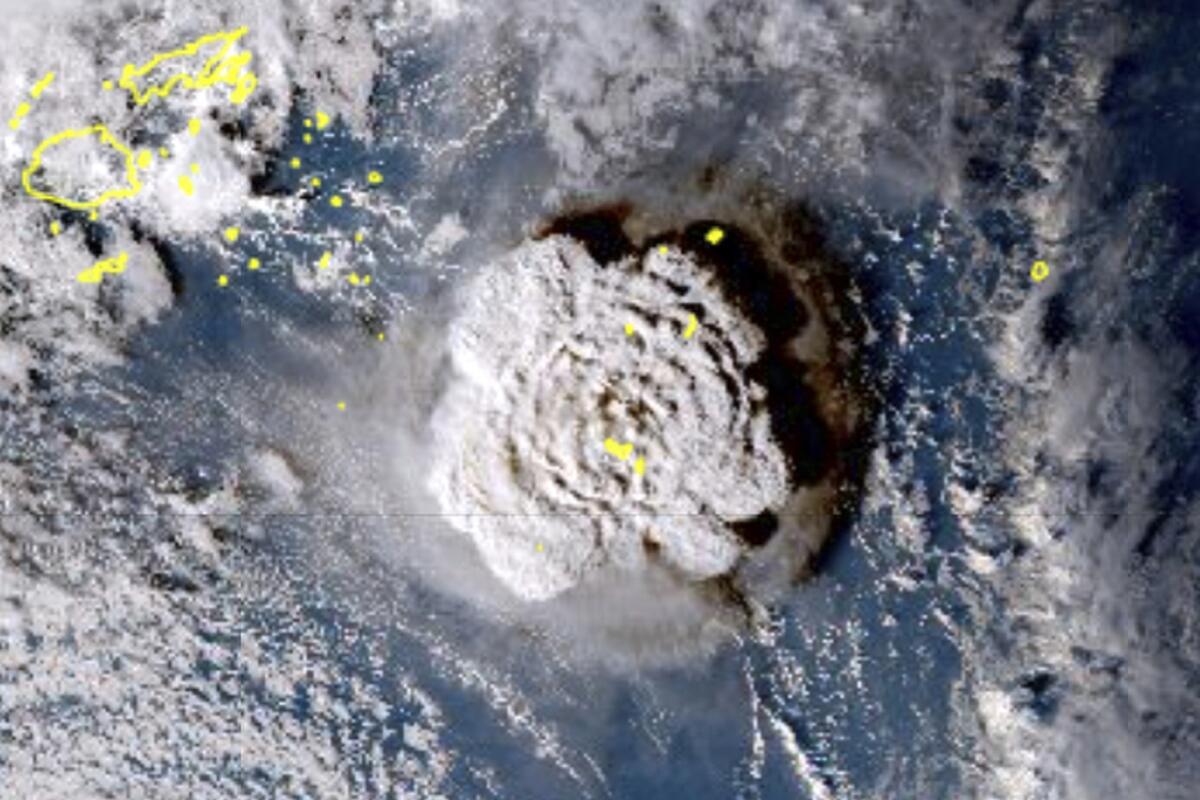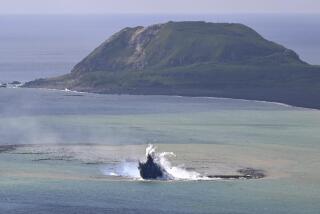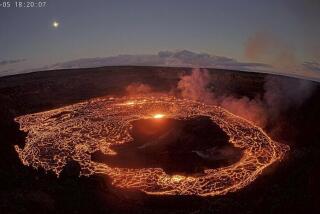A remote undersea volcano is likely erupting in the Pacific Ocean

- Share via
HONOLULU — A volcano is likely erupting deep beneath the Pacific Ocean in the U.S. commonwealth of the Northern Mariana Islands, but scientists don’t know for sure because it’s so inaccessible.
All indications are that the Ahyi Seamount began erupting in mid-October, the U.S. Geological Survey said Monday. The Northern Marianas are about 3,800 miles west of Honolulu.
Scientists are looking to see if the activity is shallow earthquakes or if material exploded from the crater, said Matt Haney, a USGS research geophysicist. Scientists are checking satellite data to see if there’s discolored water, which could suggest material is coming out of the volcano, he said.
“There’s nothing right now that suggests that this eruption will intensify and become a large eruption,” Haney said.
Still, mariners would want to avoid the immediate area, he said.
Activity from an undersea volcanic source was picked up last month by hydro-acoustic sensors some 1,400 miles away at Wake Island.
An undersea volcano in Tonga shot millions of tons of water vapor into the atmosphere, which might warm the Earth’s surface over the next few years.
With help from the the Laboratoire de Geophysique in Tahiti and data from seismic stations in Guam and Japan, scientists analyzed the signals to determine that the source of the activity was likely Ahyi Seamount, the USGS said in a statement.
Activity has been declining in recent days, the statement said.
Ahyi Seamount is a large conical submarine volcano. Its highest point is 259 feet below the surface of the ocean. It’s located about 11 miles southeast of the island of Farallon de Pajaros, also known as Uracas.
“There are no local monitoring stations near Ahyi Seamount, which limits our ability to detect and characterize volcanic unrest there,” the agency said. “We will continue to monitor available remote hydrophonic, seismic, and satellite data closely.”
The seamount is part of the Mariana Volcanic Arc, which is a chain of more than 60 active volcanoes stretching over 600 miles west of and parallel to the Mariana Trench, the world’s deepest point.
More to Read
Sign up for Essential California
The most important California stories and recommendations in your inbox every morning.
You may occasionally receive promotional content from the Los Angeles Times.













